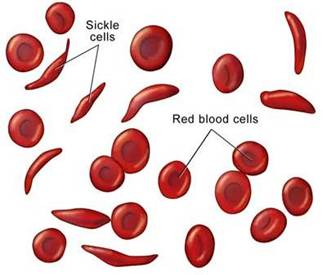By Asmau Ahmad with Agency Report
Dr Obiageli Nnodu, Deputy Chairperson, Sickle Cell Support Society of Nigeria, an NGO, has advocated for the training of primary healthcare (PHC) workers on common complications of sickle cell disease. Nnodu made the call in an interview with the News Agency of Nigeria (NAN) in Abuja on Jan 5th, 2015.
She said that the training should revolve around aetiology, presentations and common complications of the disease. She added that the PHC personnel should be able to provide basic genetic counselling to dispel myths and stigma that surrounds the disease
“Given the enormous burden of sickle cell disease in Nigeria, focusing on tertiary care would probably not make an appreciable impact on improving the overall outcome in terms of control and survival
“The more practical strategy would be to tackle the problem at primary healthcare centres level following a well-articulated national policy,” she said.
Nnodu said public health issue cannot be handled at hospital by only attending to people that come, we need to go to communities and sensitise people about it. She added that Nigerians needs to be sensitised about the disease so that they make wise choice of partners, stressing that learning about sickle cell disease should also be incorporated into the primary school curriculum.
She said that early diagnosis, through universal newborn screening has to be introduced with the enrolment of identified patients in a follow-up clinic to reduce the burden of the disease in Nigeria. NAN reports that the disease is an inherited blood disorder, which affects children early in life; often with repeated occurrence of illness and bone pains with vary periods of relative good in between. According to the National Demographic Survey, the prevalence of the disease in Nigeria is two per cent at birth and 0.05 per cent in adults. The difference in prevalence rate of two per cent at birth and 0.05 per cent in adult is attributable to deaths in early childhood. The disease contributes to maternal, neonatal, and infant and child mortality in Nigeria, adding that it undermines the attainment of Millennium Development Goals.




